A Power of Attorney in NJ is a confidential legal document or form that authorizes its resident (officially referred to as the principal) to delegate powers to someone else (officially referred to as the attorney-in-fact or agent) who will be able to act on their behalf when situations concerning financial, medical, or other personal-life-related decisions arise.
This is a thoughtful plan for a time in the future when a person might be incapacitated or unavailable to act when there is a dire need to.
Are you from New Jersey and want to know how to get this form? Are you just coming across the term “POA for NJ” and wholly perplexed why it concerns you?
This article covers the basics of it, the different types, and the steps required to get one as a New Jersey resident.
Free POA Templates
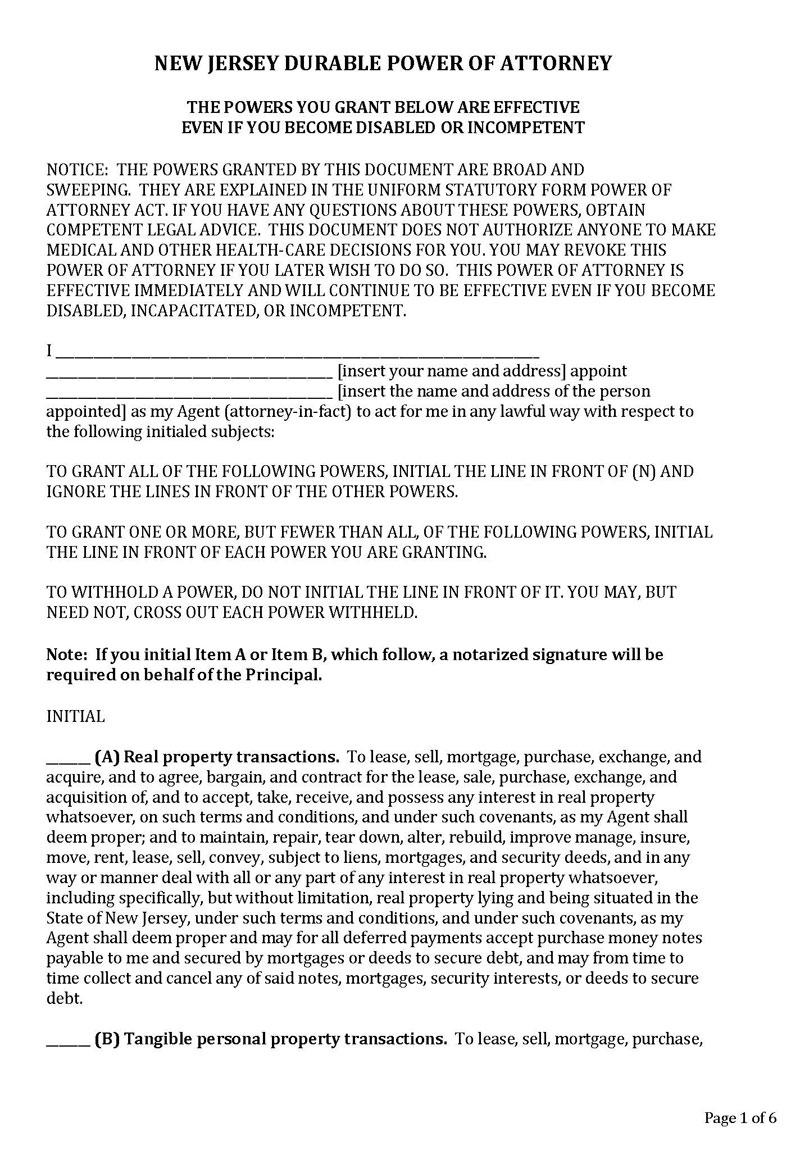
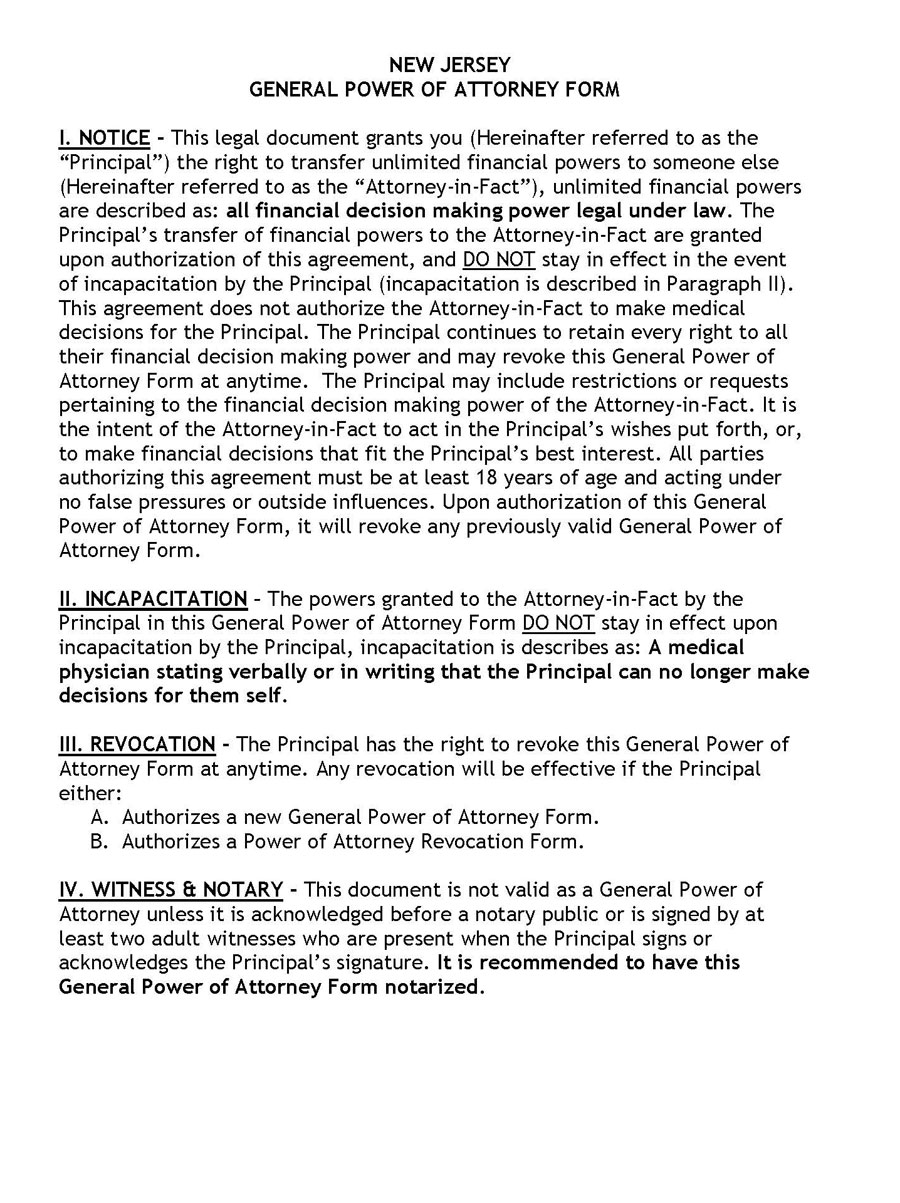
Governing Laws
Some laws establish the terms and conditions of such documents if disputed between parties/entities. The governing laws that are applied to it for NJ are:
- It says, “this POA shall not be affected by disability or incapacity of principal, or lapse of time,” it means you can still act for them if they become disabled, which does not have an expiration date — § 46:2B-8.2(b).
- Signatures of the principal and the agent are mandatory and must be authorized before a solicitor, attorney-at-law, notary public, judge, or any individual recognized to take acknowledgments under R.S.46:14-6.1 (§ 46:2B-8.9).
- There is no standard form sample under the NJ legislature, but there is expectation toward guidance on language, which is available in NJ Legislative Statutes § 46:2B-8.2.
New Jersey Power of Attorney Requirements
In New Jersey, it requires meeting some prerequisites under the state law to be presentable as a substantial document ready for execution. Every POA is legally binding and will be executed according to NJ Rev Stat § 46:2B.
Its requirements are:
- Name and contact details of the agent(s), principal, and witness: It must contain the legal names of all concerned entities – the principal, the agent(s), and successor agent(s) where necessary, and the witness(es).
- Execution date: It must be apparent on the exact date the document got set to move when it was or intended to be executed.
- The authority that is given to the agent: It directly points to the extent of power assigned to the agent with the duties attached or state if the principal is granting general authority.
- The effective date of the agent’s authority: It must be precise on how long the power designated to the agent will last or if it is unrestricted (durable). For example, will it become activated with or without the principal being incapacitated, invalid when and after the principal becomes incapacitated, or does the power become effective only when and after the principal becomes incapacitated!
- Termination of the agent’s authority: To terminate a pre-existing form implies revoking an agent’s access to certain powers designated to them in the first place. There may be times when you want to revoke your access (in the case of an unforeseen contingency). It must be in writing involves the agent and all relevant entities.
- Signatures of the principal, agent, and notary: To successfully execute it in New Jersey, all entities involved must sign the document, including the principal, agent, and notary.
- The agent’s and principal’s signature must be acknowledged before a notary public: The notary public should be present to confirm the identity of all the entities bound by the agreement and to authenticate the document.
- The document should be specific about Durable POA where it is applicable: In New Jersey, a durable POA, must clearly state that the agent’s powers will remain effective and not get revoked if the principal becomes incapacitated in the future.
- Power assigned to co-agents: If you appoint multiple co-agents to your will, you may want to specify whether or not these individuals can act in different capacities. It might also benefit you to agree on whether or not all of your co-agents have to agree with doing anything on your behalf without consulting with you first.
Types of POA Forms
If you search for such a form in New Jersey, you need to know that not all the documents you might find will be legal in the state. To ensure that you get your hands on the correct one, please, carefully go through the details on each type that we have highlighted for you below:
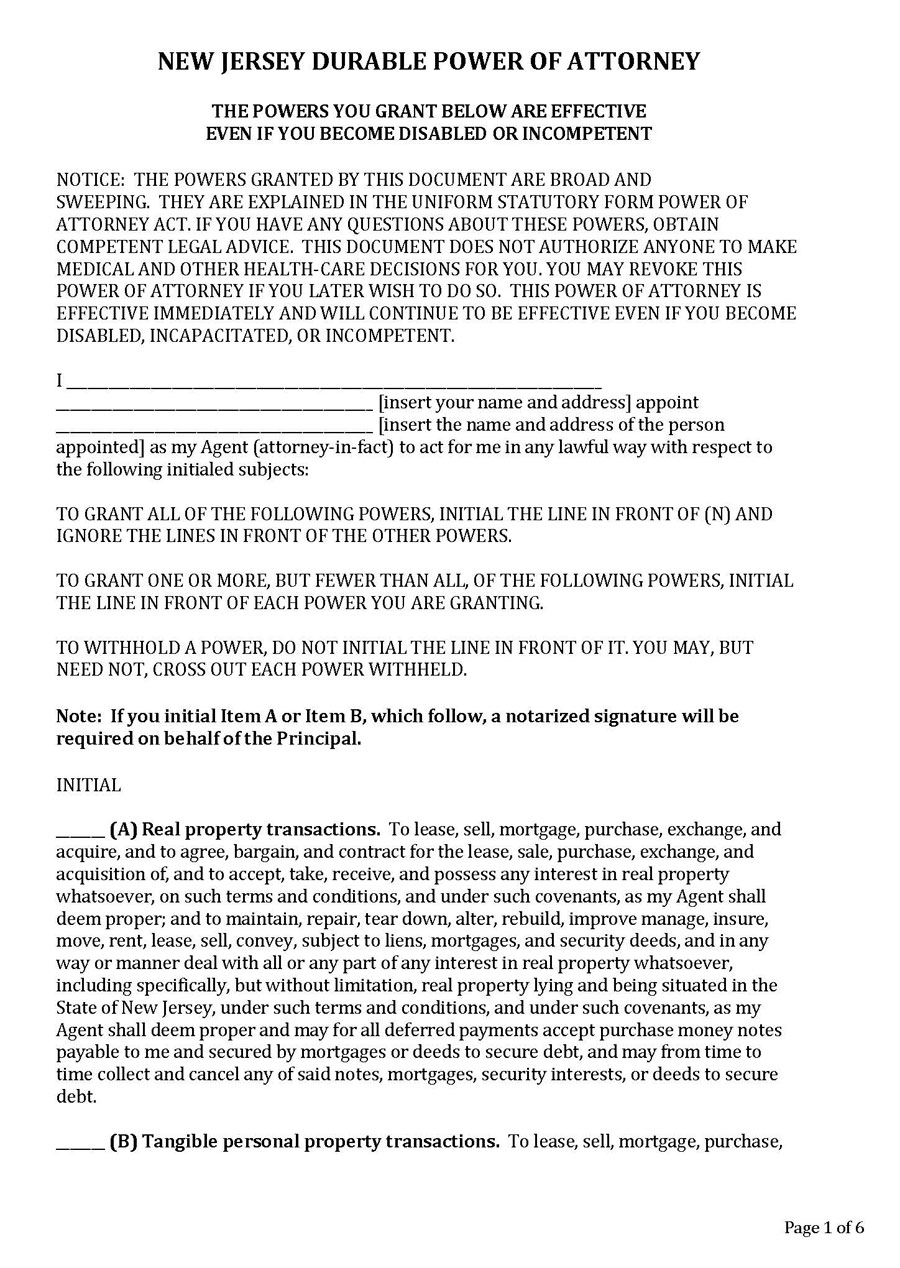
Durable (Financial) Power of Attorney Form
Download: Microsoft Word (.docx)
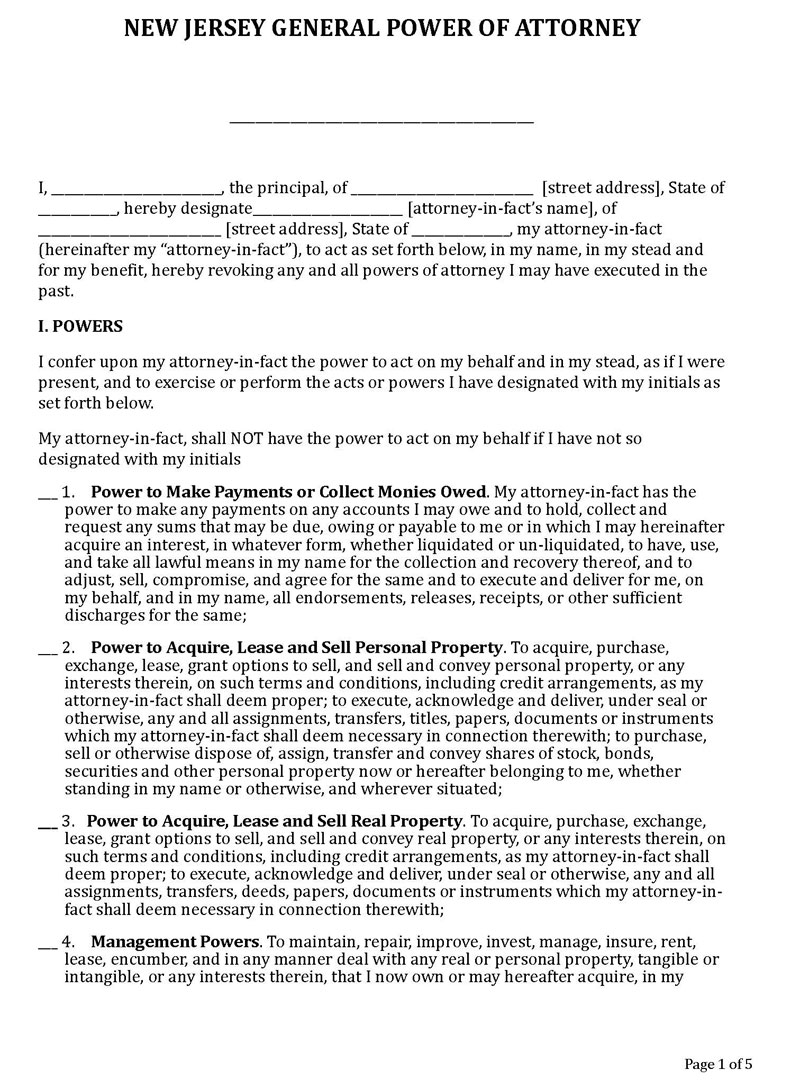
General (Financial) Power of Attorney Form
Download: Microsoft Word (.docx)
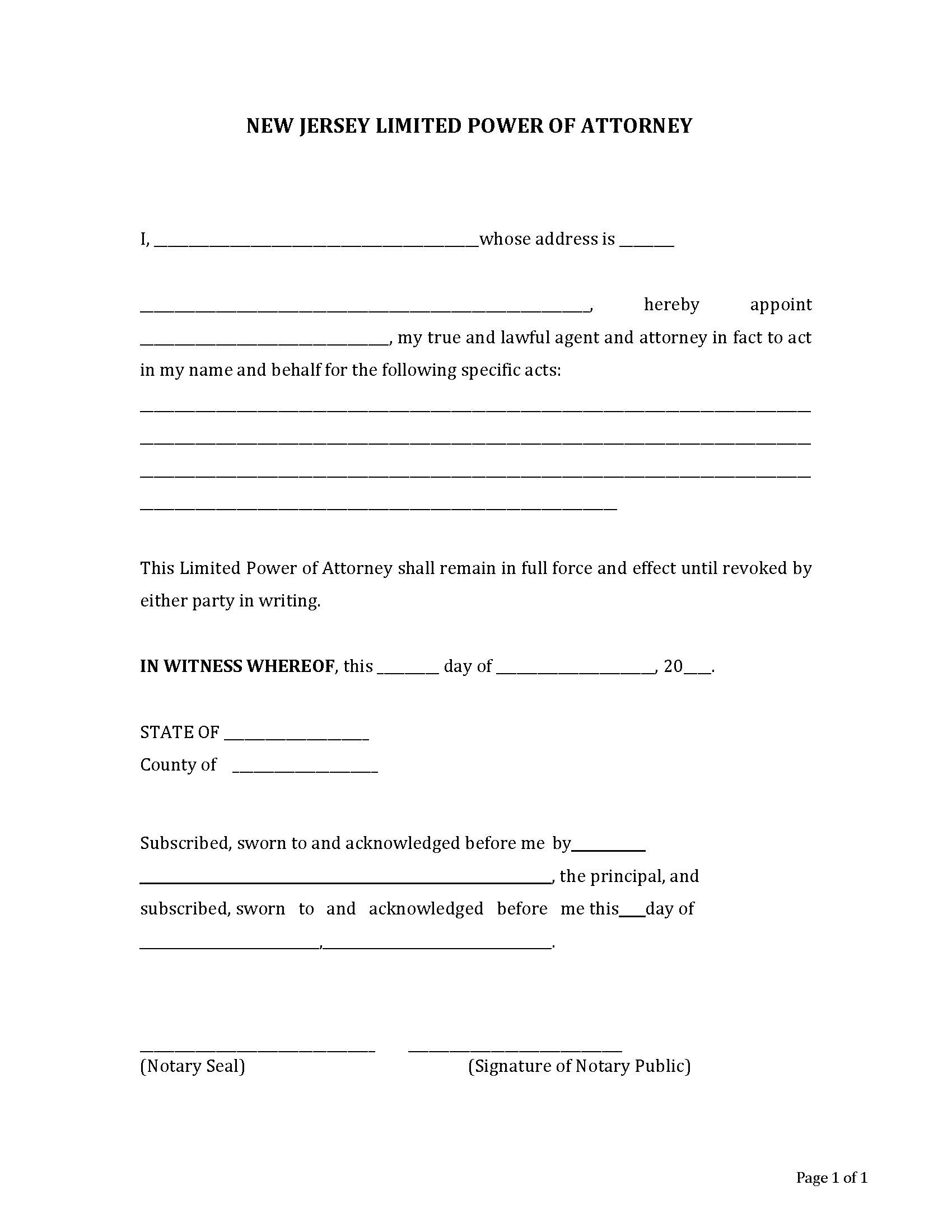
Limited Power of Attorney Form
Download: Microsoft Word (.docx)
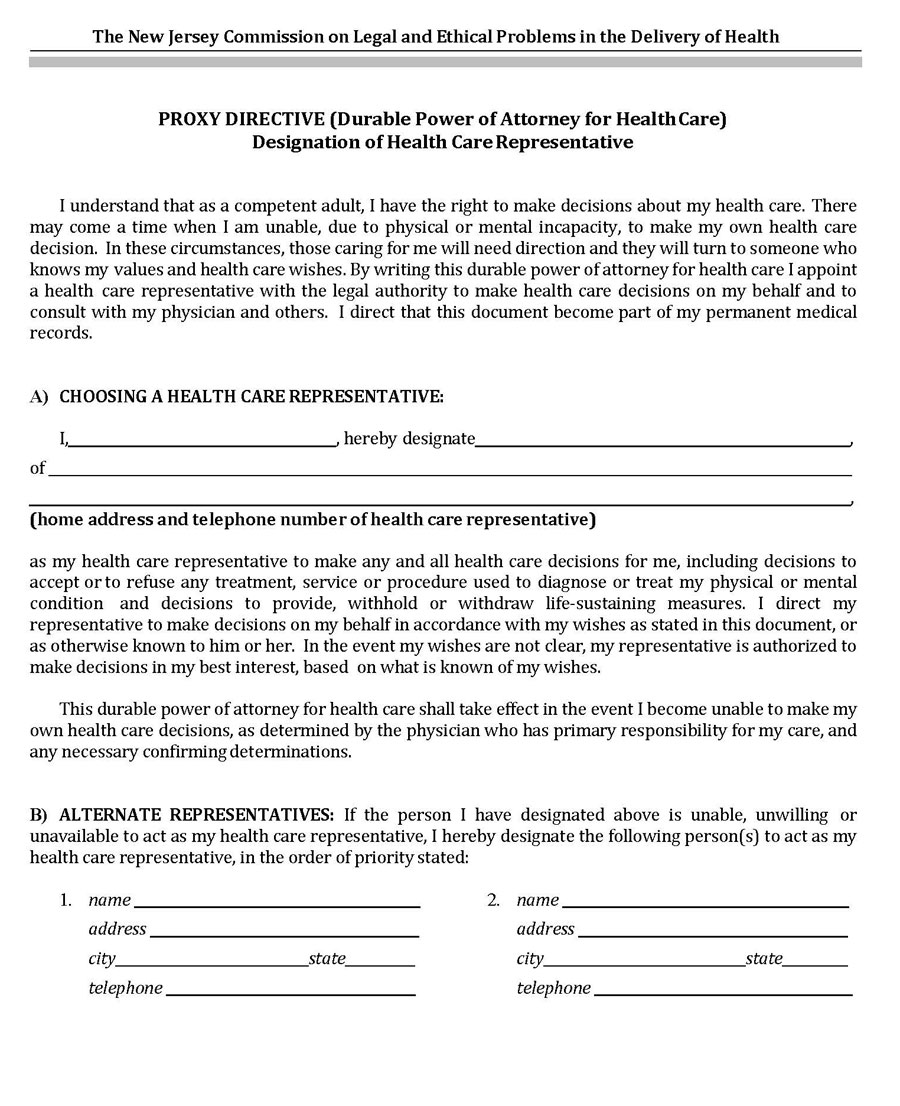
Medical Power of Attorney Form
Download: Microsoft Word (.docx)
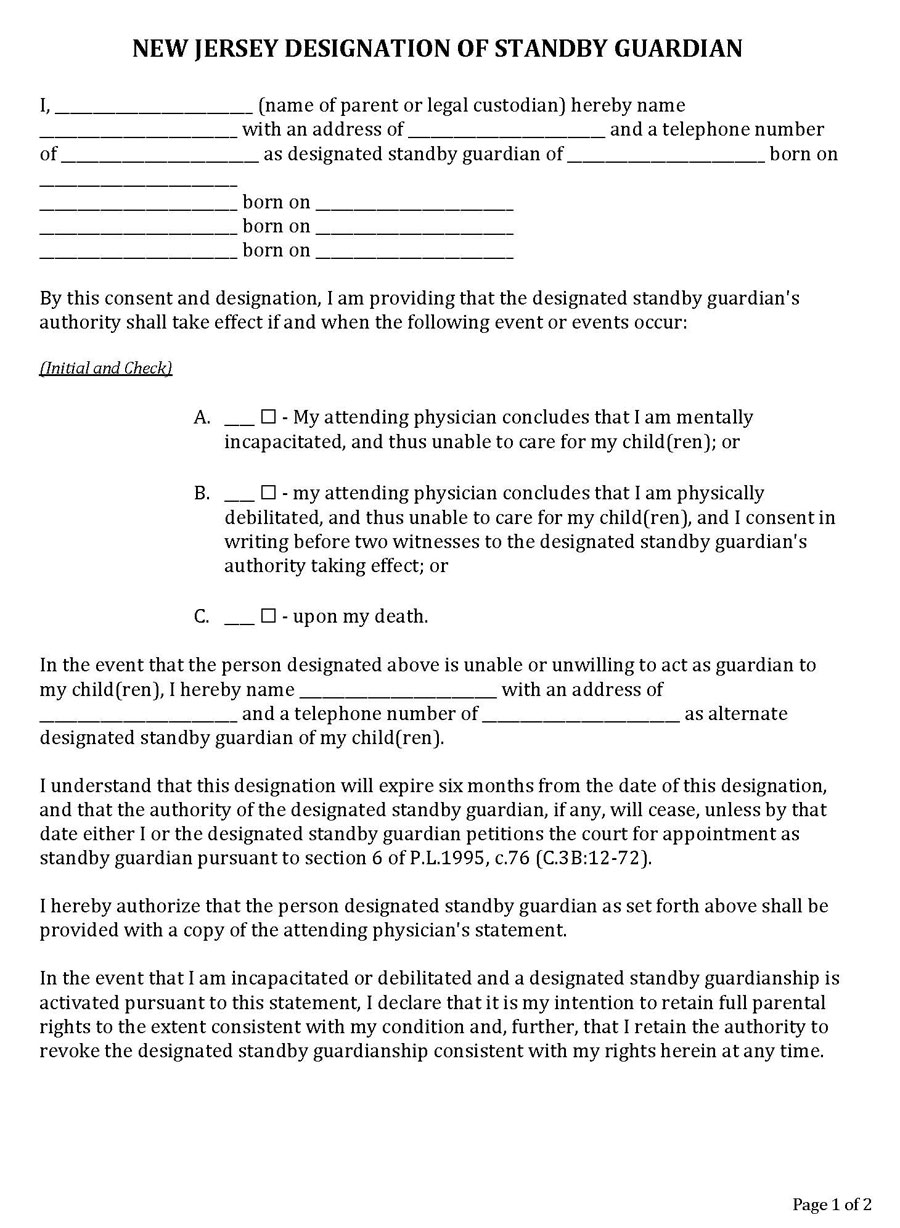
Minor (Child) Power of Attorney Form
Download: Microsoft Word (.docx)
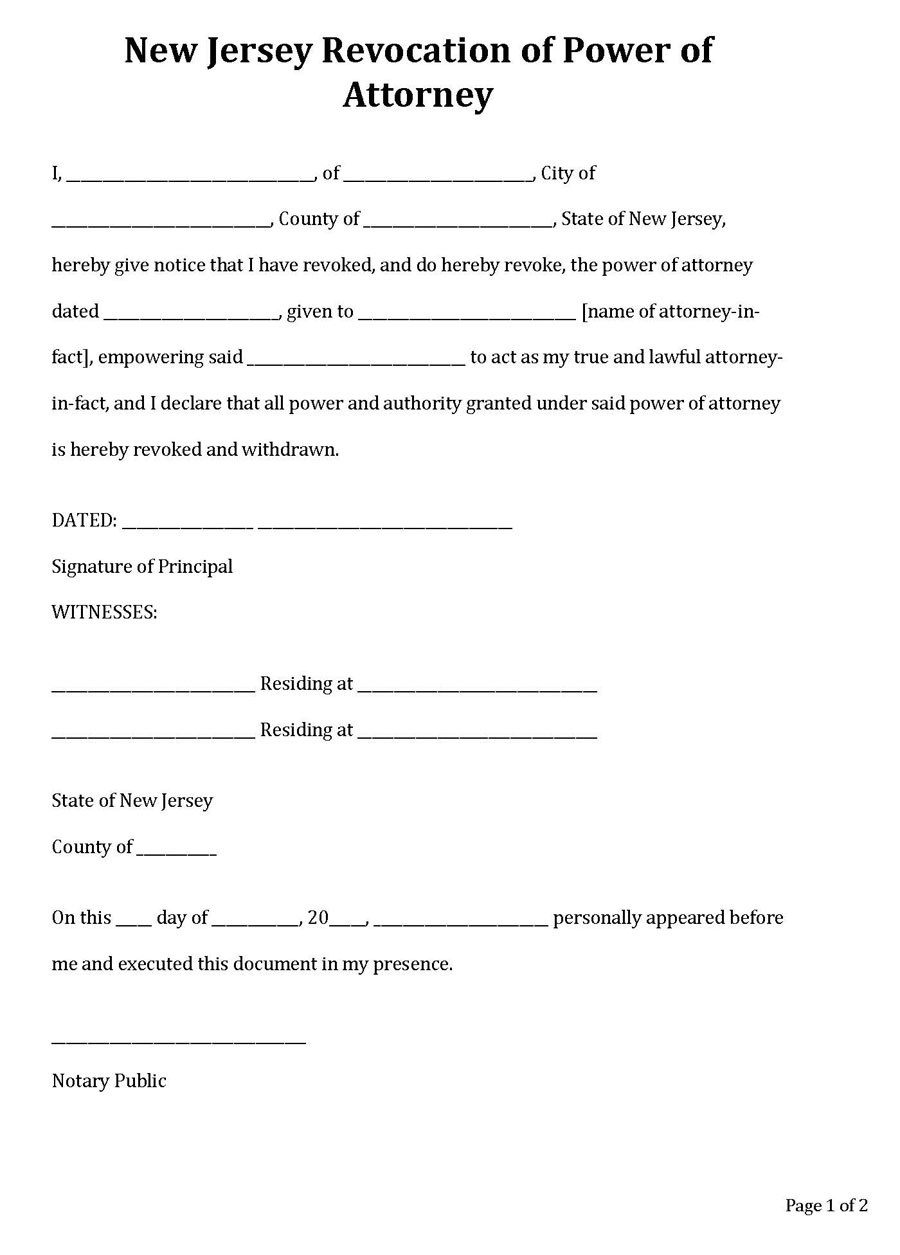
Revocation of Power of Attorney Form
Download: Microsoft Word (.docx)
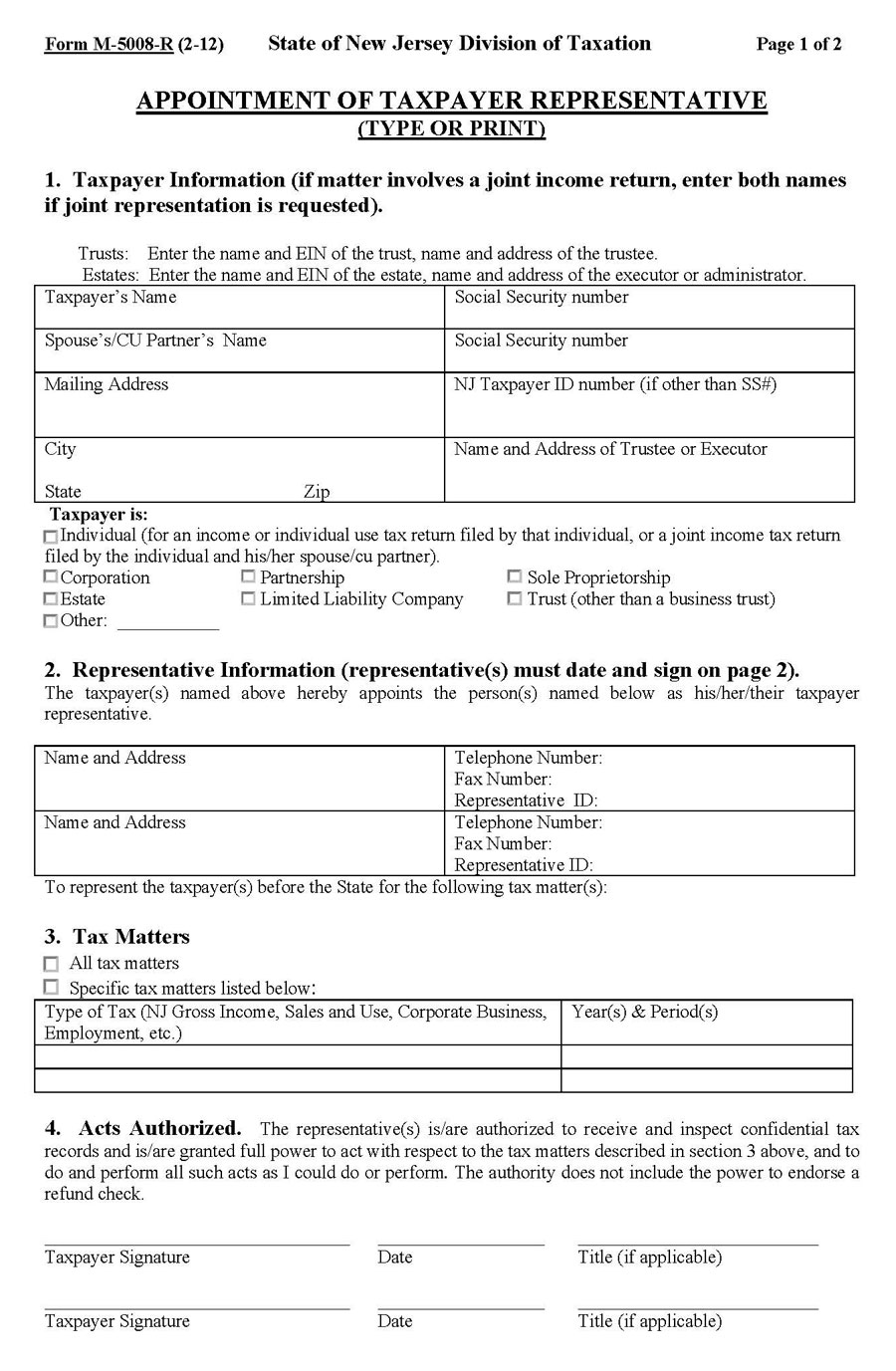
Tax Power of Attorney Form
Download: Microsoft Word (.docx)
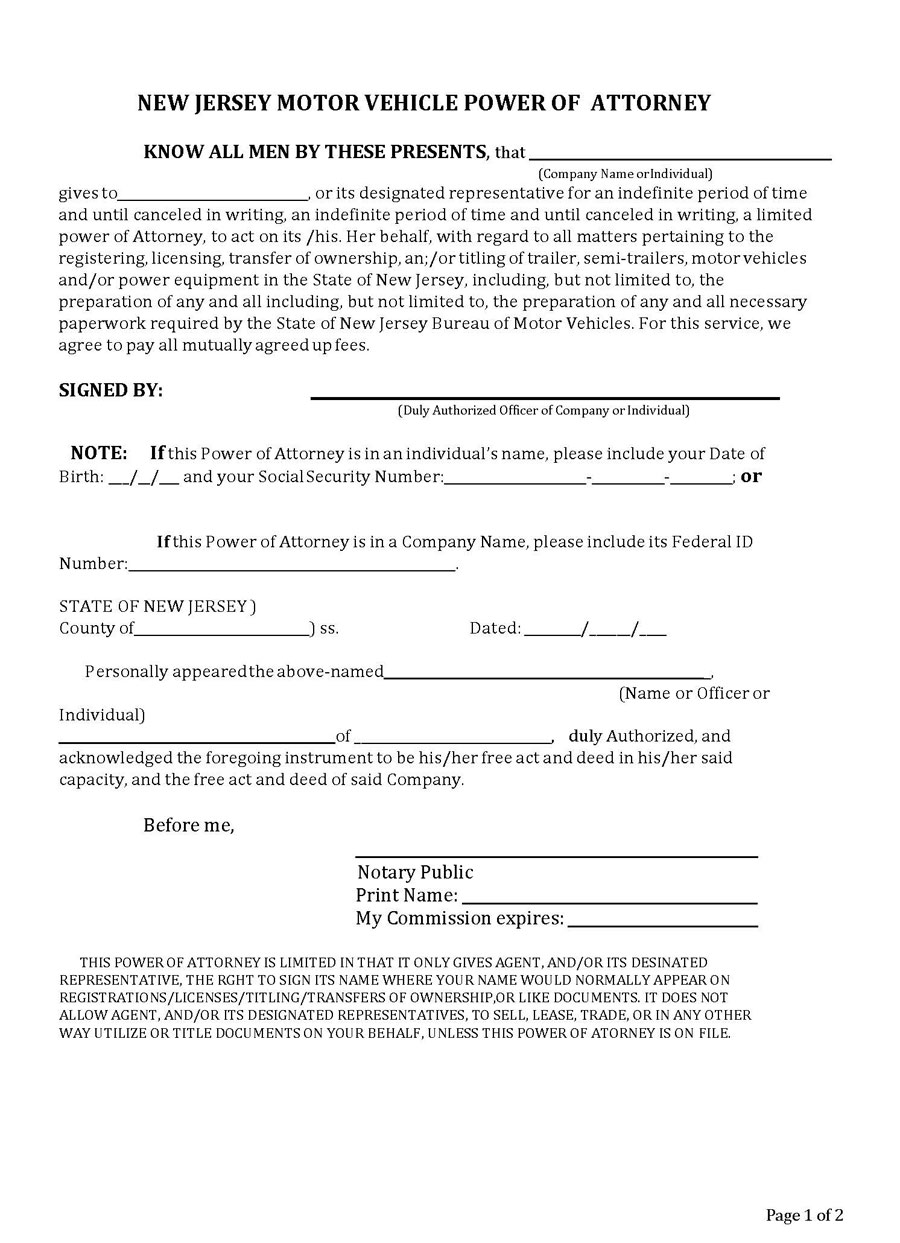
Vehicle Power of Attorney Form
Download: Microsoft Word (.docx)
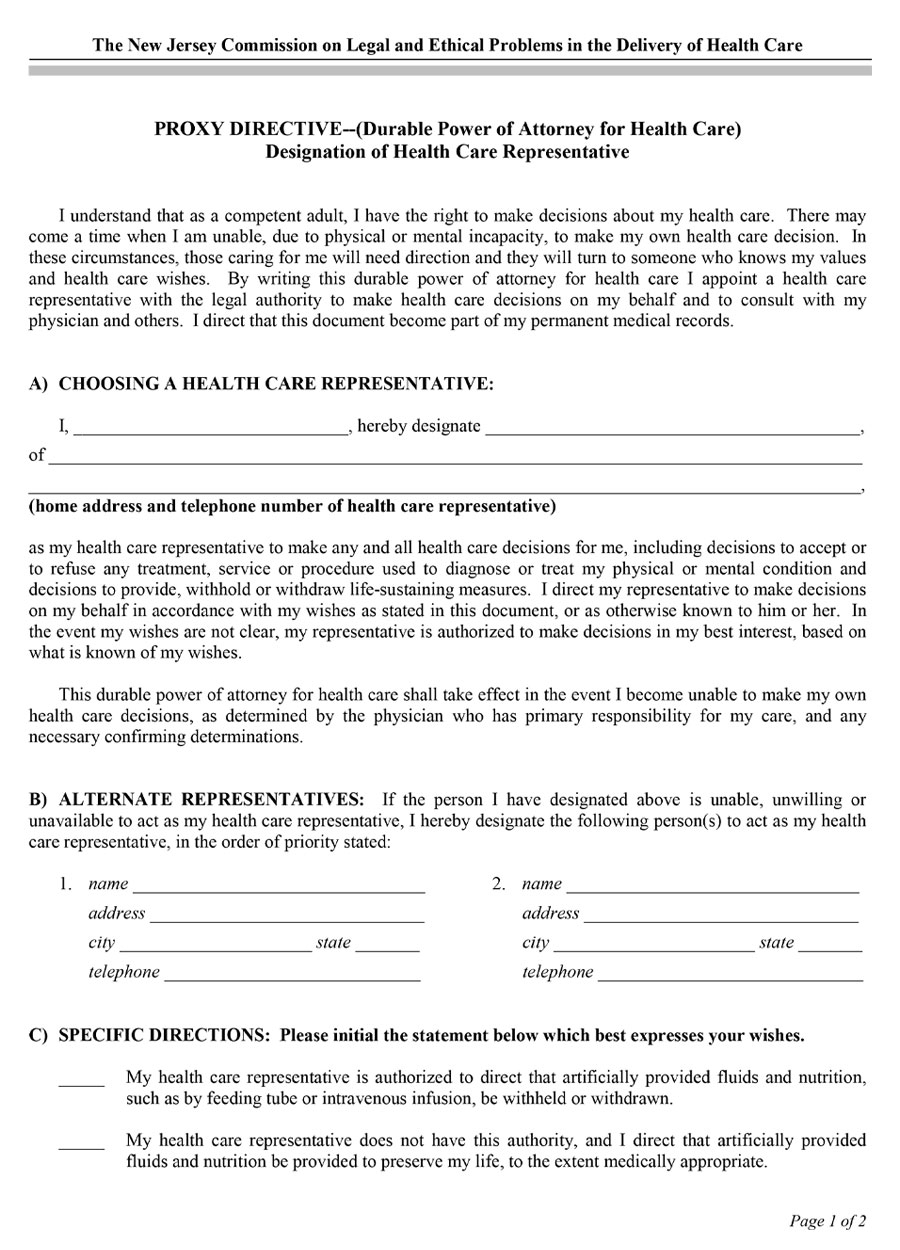
Advance Directive Power of Attorney Form
Download: Microsoft Word (.docx)
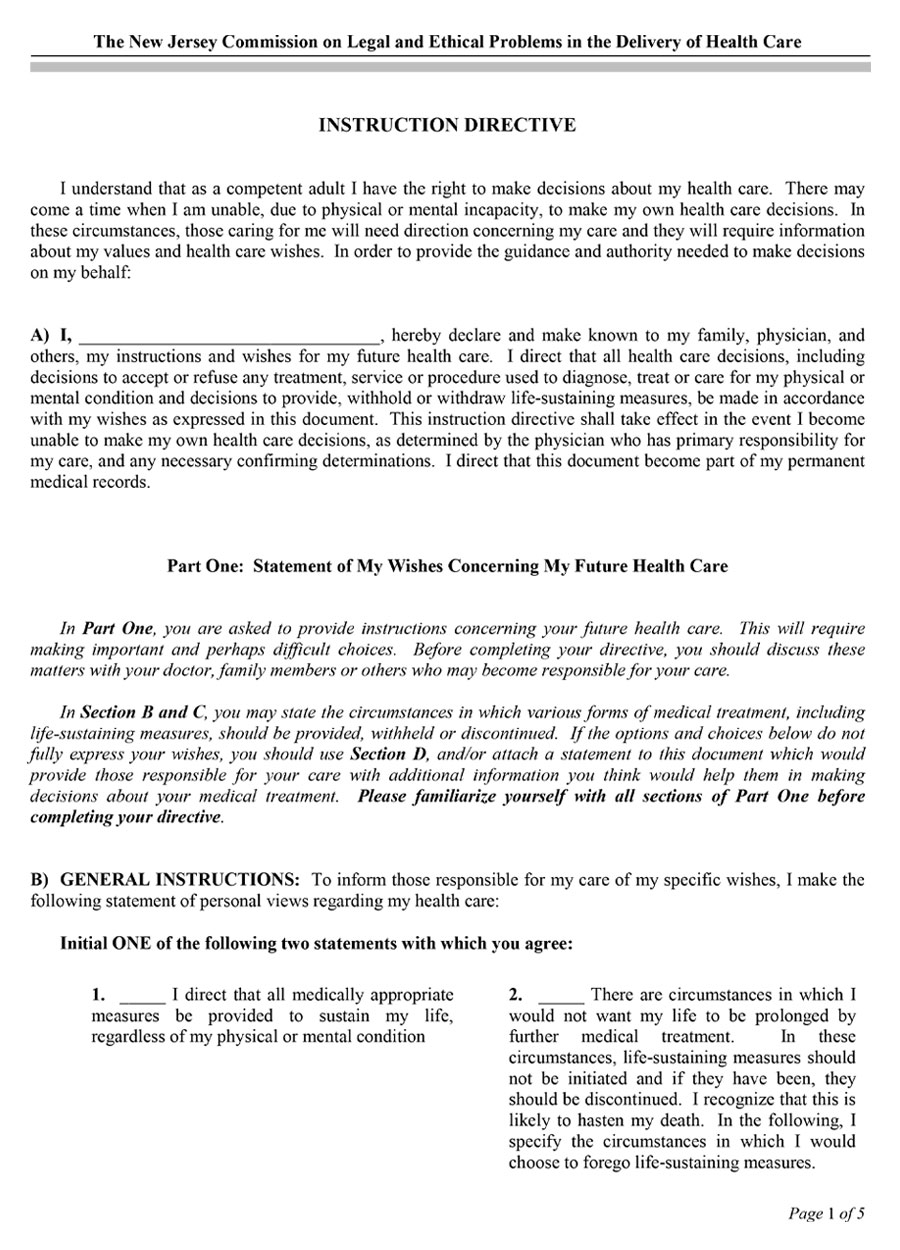
Living Will Power of Attorney Form
Download: Microsoft Word (.docx)
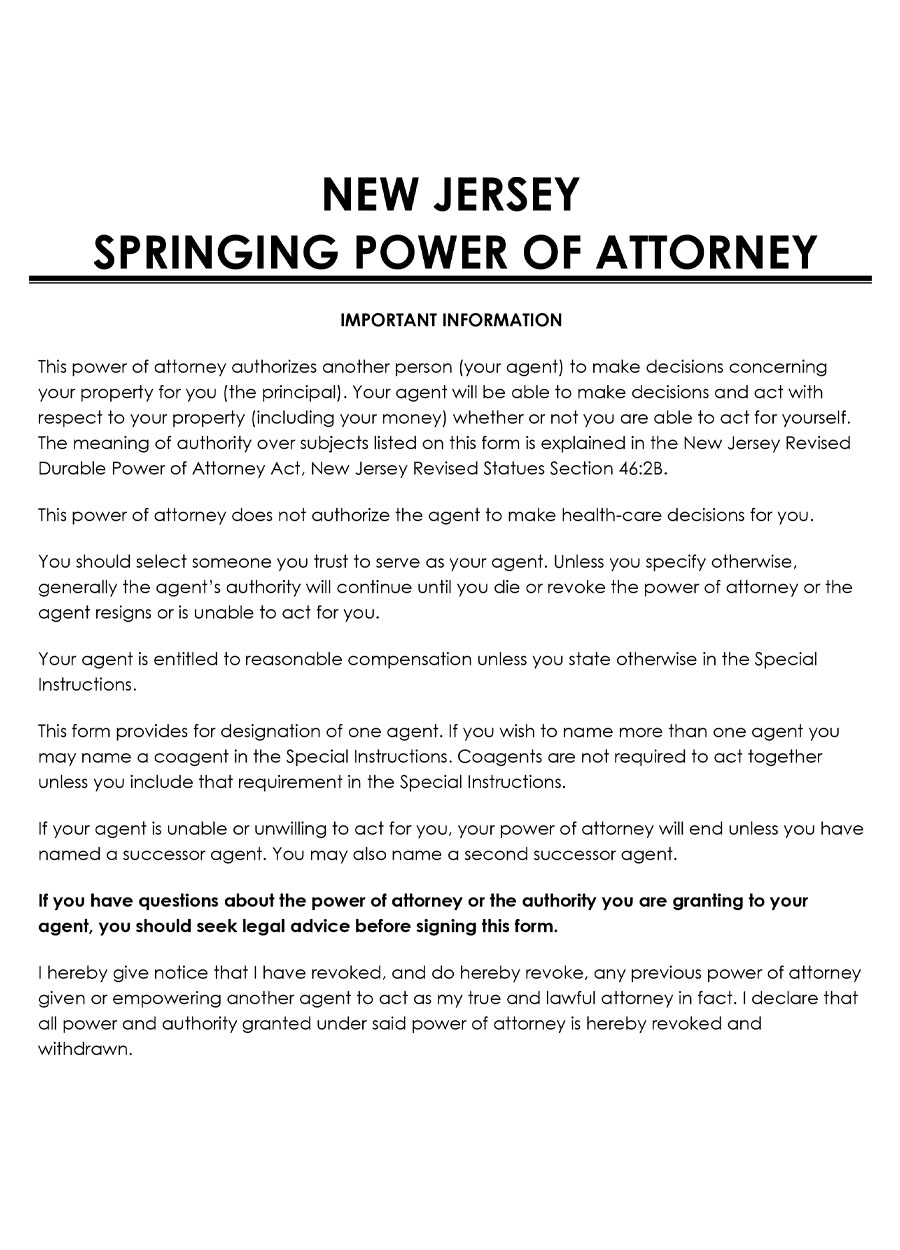
Springing Power of Attorney Form
Download: Microsoft Word (.docx)
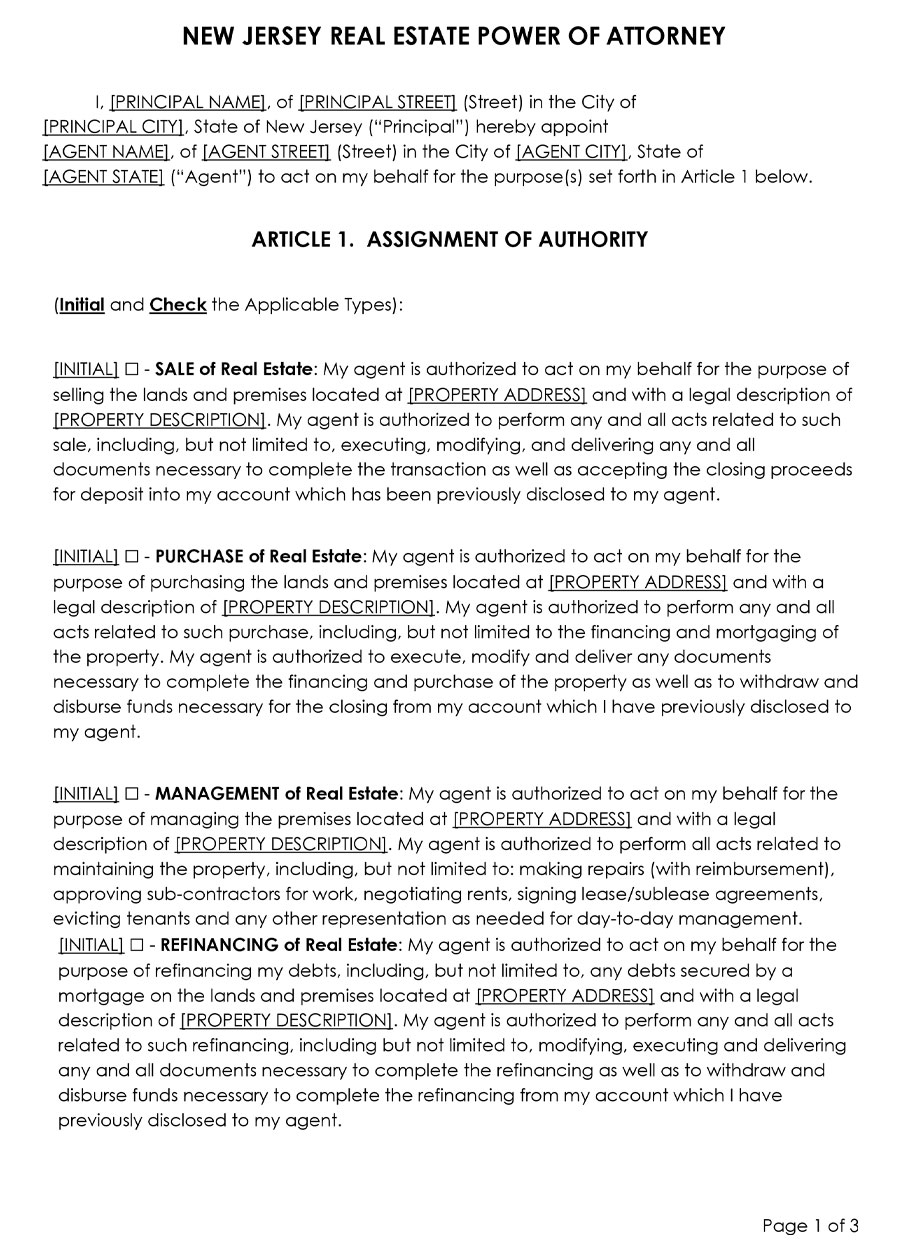
Real Estate Power of Attorney Form
Download: Microsoft Word (.docx)
How to Get Power of Attorney in New Jersey?
You must know that NJ Rev Stat § 46:2B. is regulating all power of attorneys. The Health Care Proxies New Jersey power of attorney for health care to be executed according to NJ Rev Stat §26:2H-53 to §26:2H-67, which is specific to the state’s law.
If you are a resident of New Jersey, there are steps required of you by the state to get it. We hope that the steps below are helpful to guide you towards getting yours:
- The principal who is transferring their power to another person should be present.
- The agent receiving power from the principal should be present, along with the successor agents, for situations in the future when the 1st agent is unavailable, incapacitated, or dismissed.
- The POA form, specific to New Jersey state laws, should be available in printed form.
- Signature of the principal or another person presented to stand in for the principal as stated to sign principal’s name on the document.
- Ensure that a notary public authorizes the signatures.
Bottom Line
Whenever you’re leaving New Jersey for a different part of the country or the world, it is pertinent that you have the appropriate legal paperwork to hand over your financial or property affairs that may need your attention in competent hands.
The abovementioned scenarios are why you need a POA in NJ to protect your personal, health, financial, and property affairs.
We understand that finding the right form can be stressful. We hope that you found this list of forms helpful. You can also run the process through your lawyer to ensure that you fully comply with the New Jersey state laws on POA.












